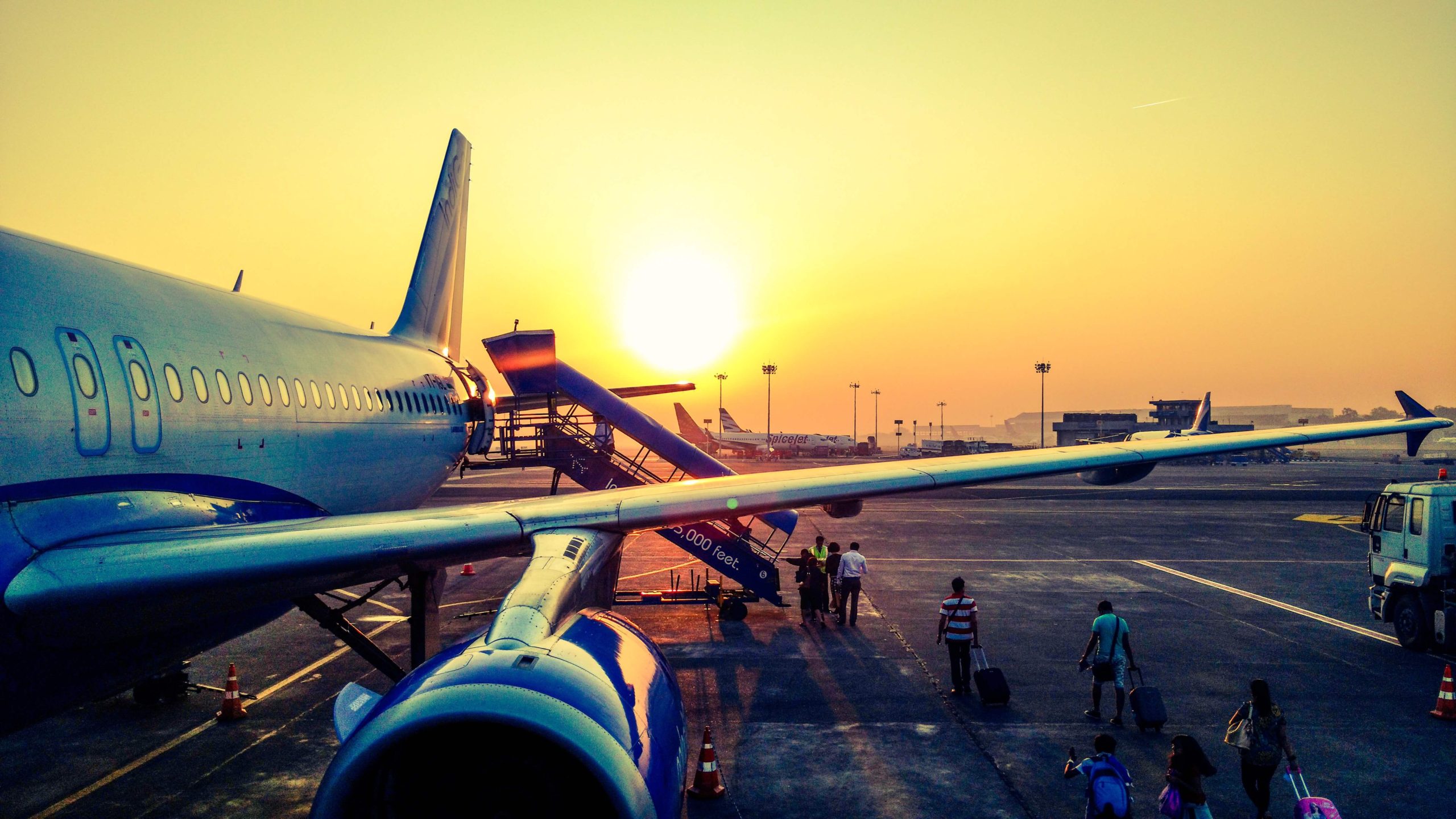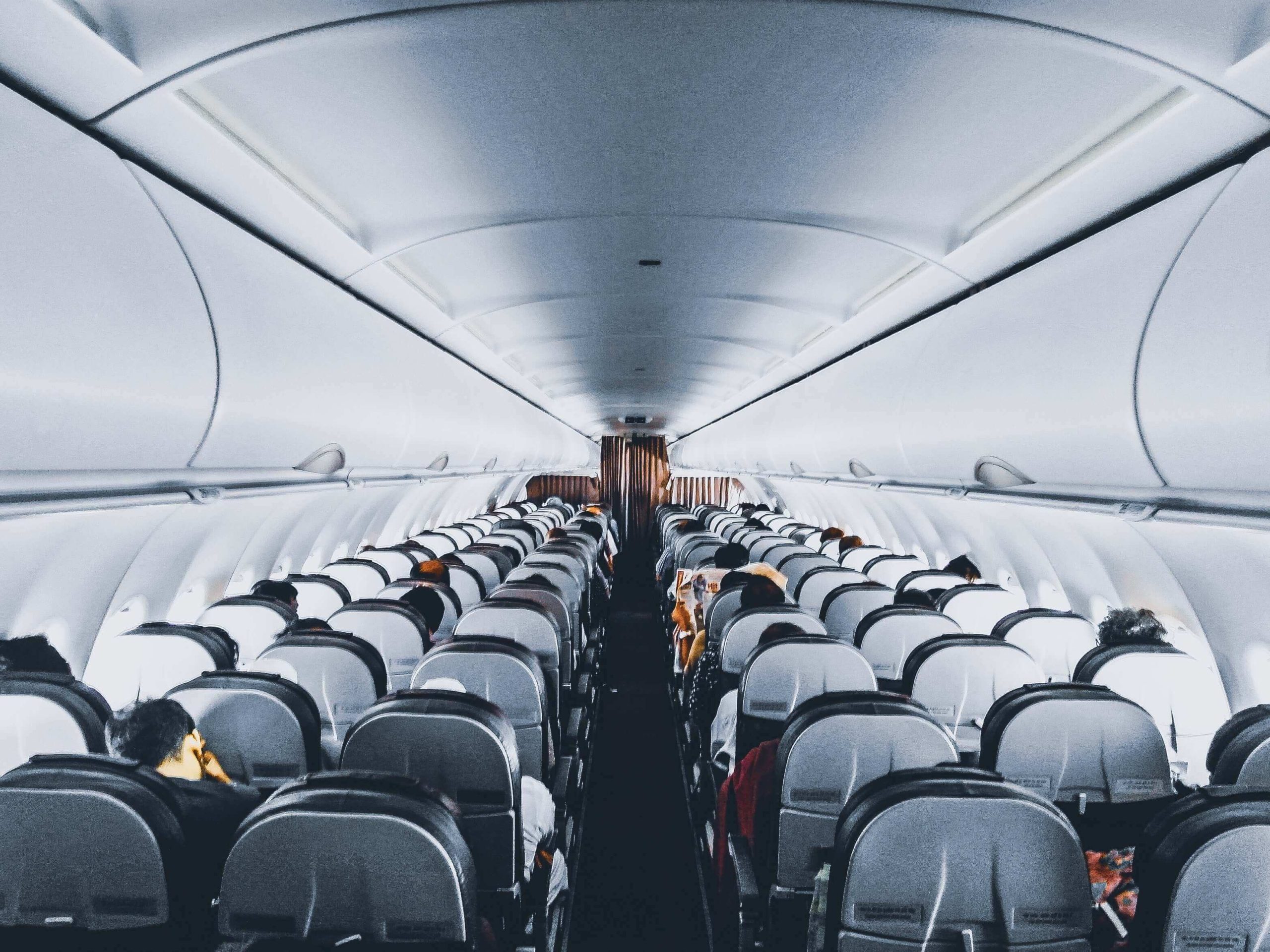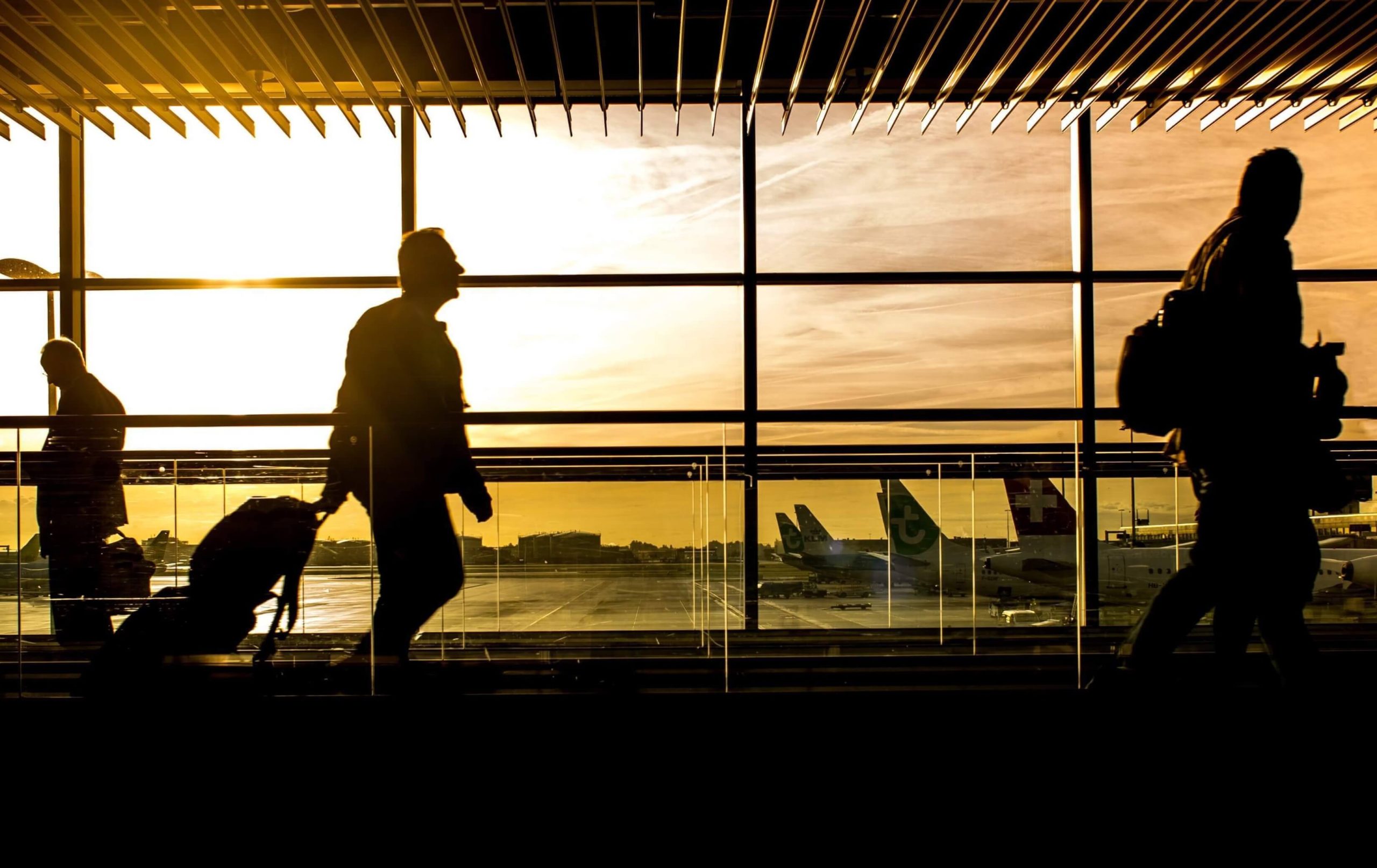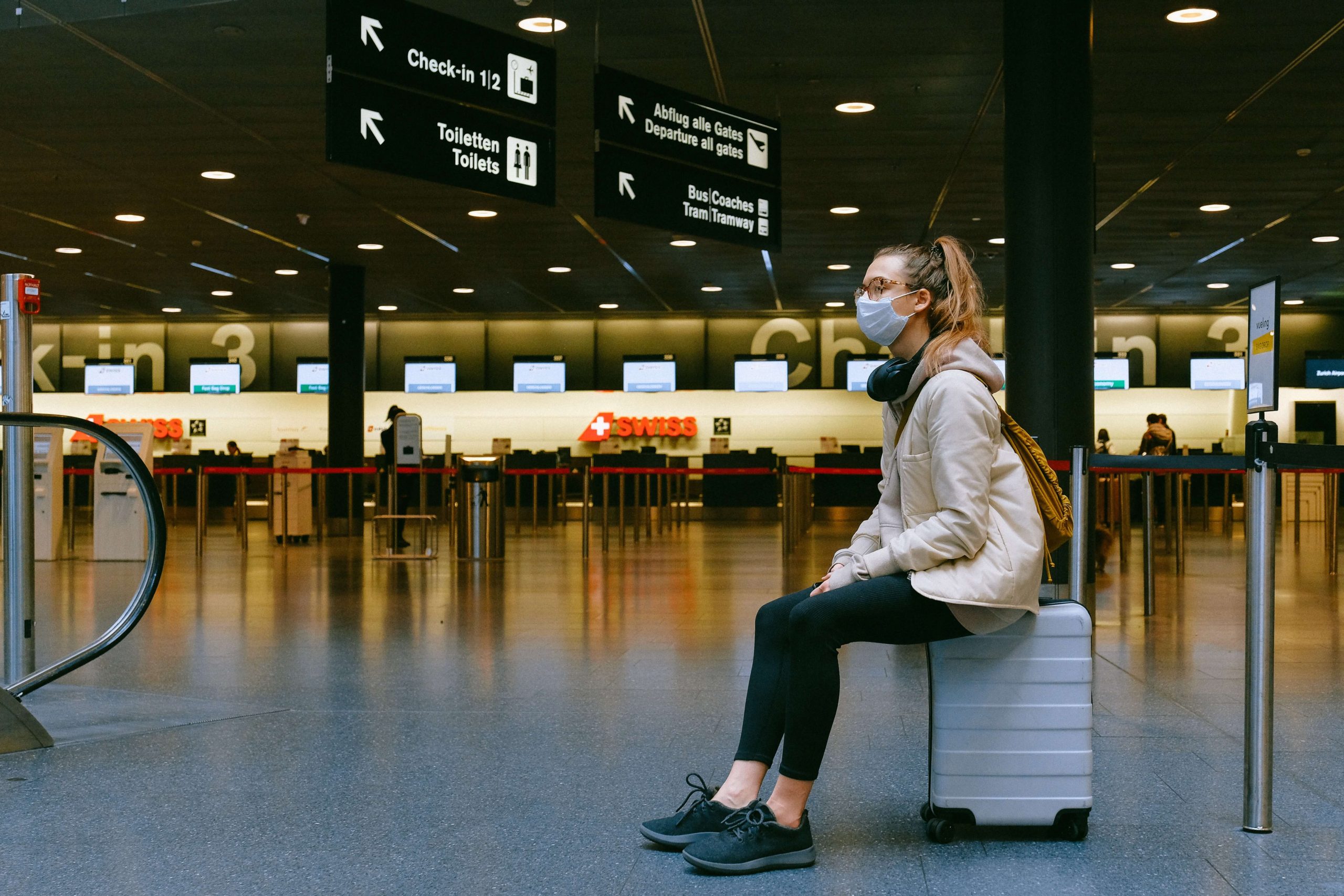
Although the vaccination against Covid-19 has started and a considerable portion of the world population has already received it, we still have to follow some precautionary measures when traveling. Unfortunately, things still haven’t got back to normal completely. Nothing happens overnight, so the vaccine cannot magically propel us back to how everything used to be. However, we may allow ourselves to be cautiously optimistic. We can see that many people have begun traveling, both for work and for pleasure. And if you are considering joining these people, we have prepared a few tips on how to stay safe while flying during the pandemic.
Vaccines are not 100% bulletproof
Remember, even fully vaccinated, you are still at risk of contracting a variant of the virus. The vaccine will significantly lower the chances of you getting infected and spreading the virus. Nevertheless, traveling increases the risk of infection. Therefore, it is still advisable to continue taking all the precautions necessary to protect yourself and others if you must travel. If you still haven’t received both vaccine doses, CDC advises against traveling until you have got this covered. So, we can conclude that getting vaccinated is the first step to take to stay safe while flying during the pandemic.
Things to consider before you plan your trip
Before you decide on your destination, there are a few things you need to consider. That will allow you to prepare well and protect yourself and others around you. There are two sets of questions you need to answer. The first set deals with your personal situation and your individual case. The second set is about the destination and rules in your country and the place you are going to.

There are many things to consider before planning your trip.
What to think about regarding your individual case
- Have you already been vaccinated? If not, and if possible, do it before your trip. Since you will need two doses, it would be best to wait for two weeks after the second dose to travel. This period is necessary because your body will need some time to build protection against the virus. It is the same with any vaccination.
- Are you suffering from any illnesses, or are you at risk of severe diseases? While anyone can get Covid-19, certain groups are at higher risk than others. Older adults and individuals who suffer from specific medical conditions (diabetes, asthma, other severe diseases) are at a higher risk of developing severe Covid-19 symptoms.
- Does anyone who travels with you belong to a high-risk group?
- Do you live with someone who belongs to a higher-risk group? Remember that you can spread the virus to your loved ones if you get infected during your travels. Also, keep in mind that you don’;t necessarily have to exhibit any symptoms, but still be positive.
- If you get infected, how will that impact your work and other obligations? Can you afford to miss work or fail to fulfill some of your commitments?
Considerations regarding the destination and government rules
- Are there any requirements or restrictions in your country or the place you are traveling to? You have to check and follow federal, state, and local rules regarding testing. Check if you will be required to stay at home for two weeks after your trip. But keep in mind that regulations can change pretty quickly.
- Will it be possible to maintain six feet distance between you and other passengers?
- Is Covid-19 spreading in the country you are traveling to? This is a crucial consideration since you don’t want to put yourself in danger unnecessarily.
- Is Covid-19 spreading in your state or community? Would traveling be responsible?
How to stay safe while flying?
Here are some general guidelines that apply to any kind of travel:
- Keep the distance from others as much as you can.
- Avoid contact with people who show any signs of illness.
- Avoid touching high-touch surfaces such as handrails, elevator buttons, counters, etc.
- Keep a hand sanitizer with at least 60% of alcohol at hand, use it frequently, and wash your hands whenever you have the chance. It is imperative after using the toilets, before eating, and after you have sneezed, coughed, or blew your nose. Always wash your hands with soap and for about 20 seconds.
- Always wear a face mask indoors but also outdoors in crowds.
- Try not to touch your face, specifically your eyes, nose, and mouth.
- Cough and sneeze in your elbow.
- Try not to eat or drink while on the plane, bus, or in other closed spaces. It will allow you
to wear your mask at all times.
Specific guidelines for air travel
Although CDC stated that the chances of the virus spreading on the plane are smaller, you will have contact with a lot of people before you board the plane.

The good news is that viruses don’t spread that easily on flights. However, this doesn’t mean you should let your guard down. If the flight is fully booked, distancing yourself from others can be very difficult. Moreover, before you board the place, you will spend some time in lines and at airport terminals with a lot of other people. So, you should know how to go through the airport safely.
Therefore, here are the requirements by The Transportation Security Administration (TSA):
- Wearing a mask is obligatory. Still, TSA employees may ask travelers to move the mask
to perform identification. - Travelers shouldn’t hand their boarding passes to TSA officers. They should place them on the scanner and show them to the officers.
- Each traveler is allowed up to 12 ounces of hand sanitizer.
- Personal items such as keys, phones, wallets, etc., shouldn’t go into bins now. You should put them in carry-on bags, so there is no unnecessary touching of these items.
- You can bring food, but it must be in a plastic bag, and you will have to put it in the bin for screening. If you don’t, the people doing the screening may have to open your bag.
It is also advisable to wash your hands immediately before and after the screening process. Moreover, you can use wet wipes or a sanitizer to wipe armrests, light buttons, the handle on the bathroom door, or the seat.

Wearing a mask is mandatory at the airport and during the flight.
Maintaining physical health while traveling
One way to look after yourself and make sure you stay healthy is to stay active. Exercising is vital for your physical and mental well-being. When on holiday, people usually neglect physical activity, stop paying attention to what they eat, and let themselves go a bit. However, now more than ever, it’s crucial to do everything you can for your health. Therefore, you should find a way to keep a routine while on the road. It doesn’t have to be a full-body, high-intensity workout. But, a more moderate version to keep your blood running is more than recommended.
Safety first, always!
Given how affordable plane tickets are at the moment and the fact that airports are recovering, it is hard to resist the temptation to book a holiday somewhere exotic. They are even more tantalizing after a year and a half of being cooped in our homes. However, you have to understand that traveling by plane requires you to do a lot more to stay safe than just wear a mask. You will be around many different people, and you will likely be in contact with some high-touch surfaces. So, to stay safe while flying during the pandemic, make sure you follow all the guidelines and do thorough research.
